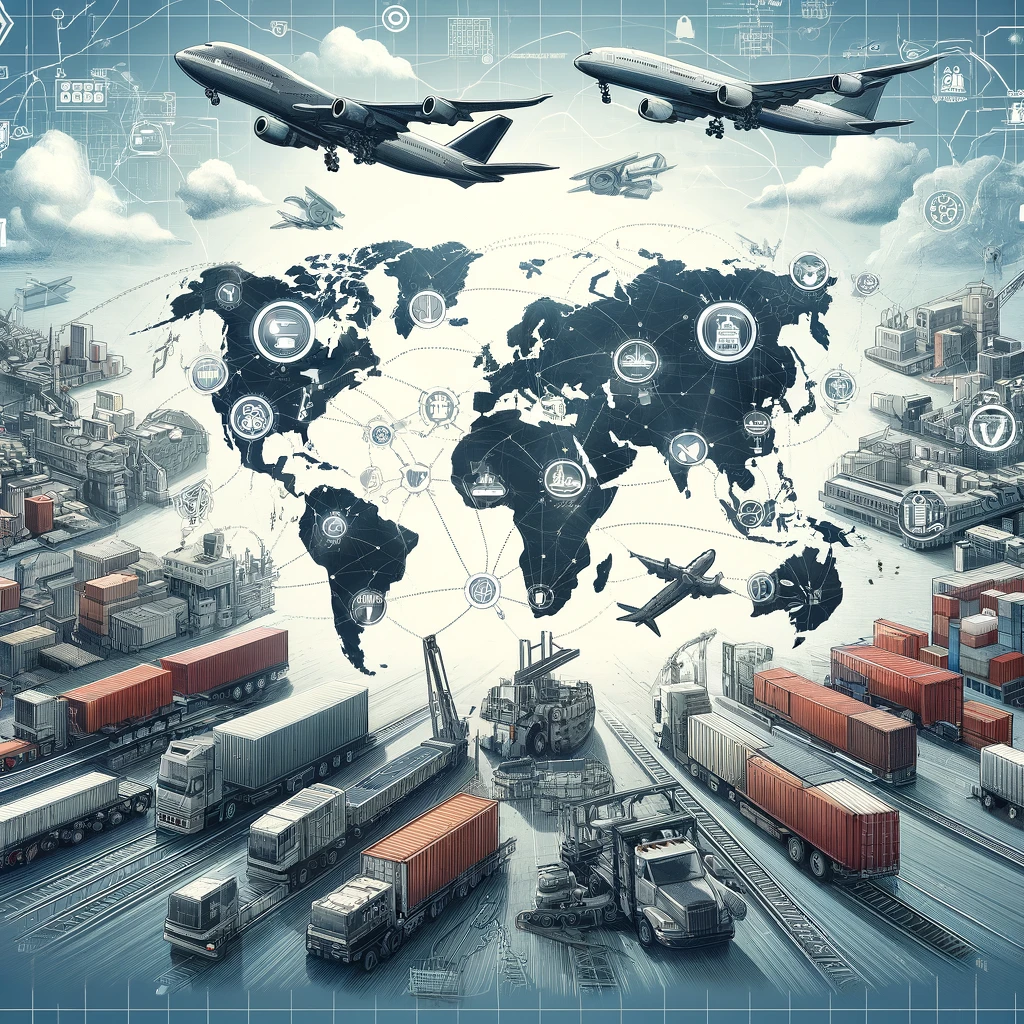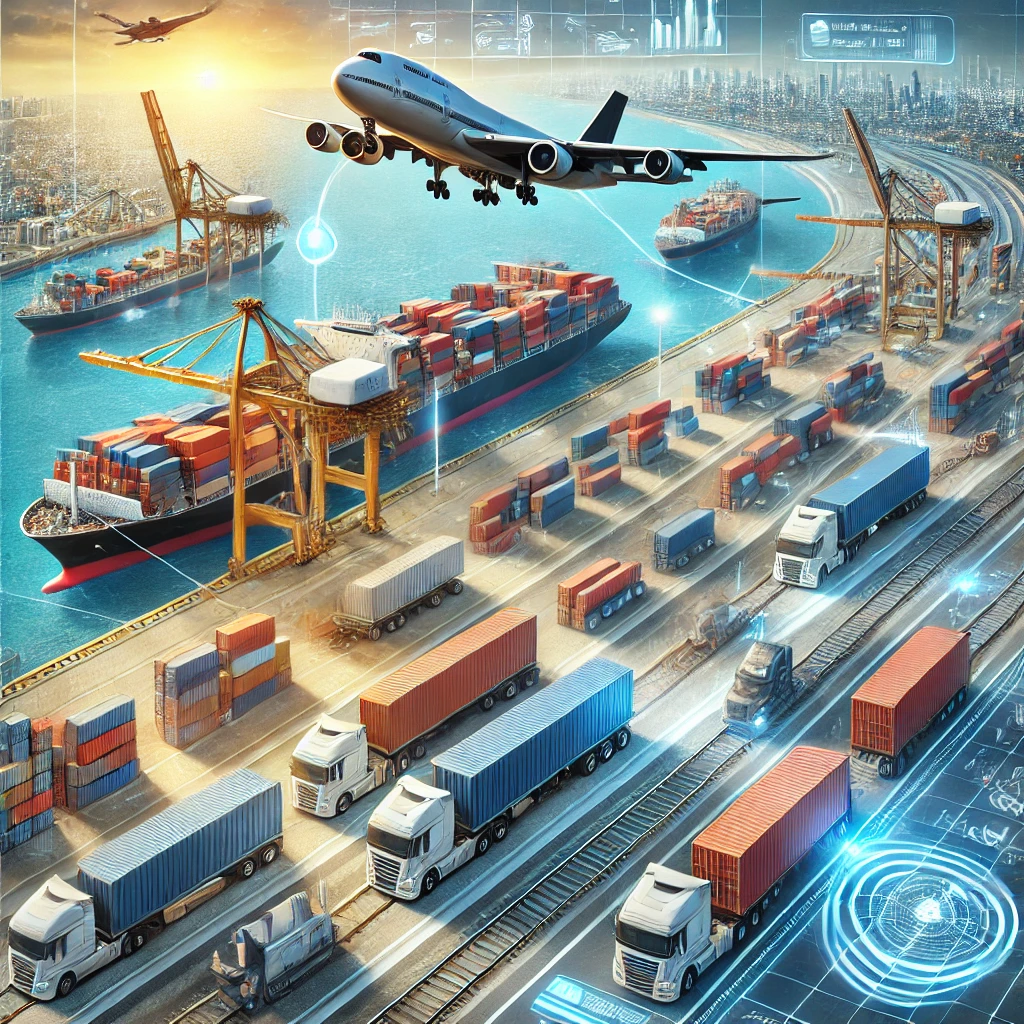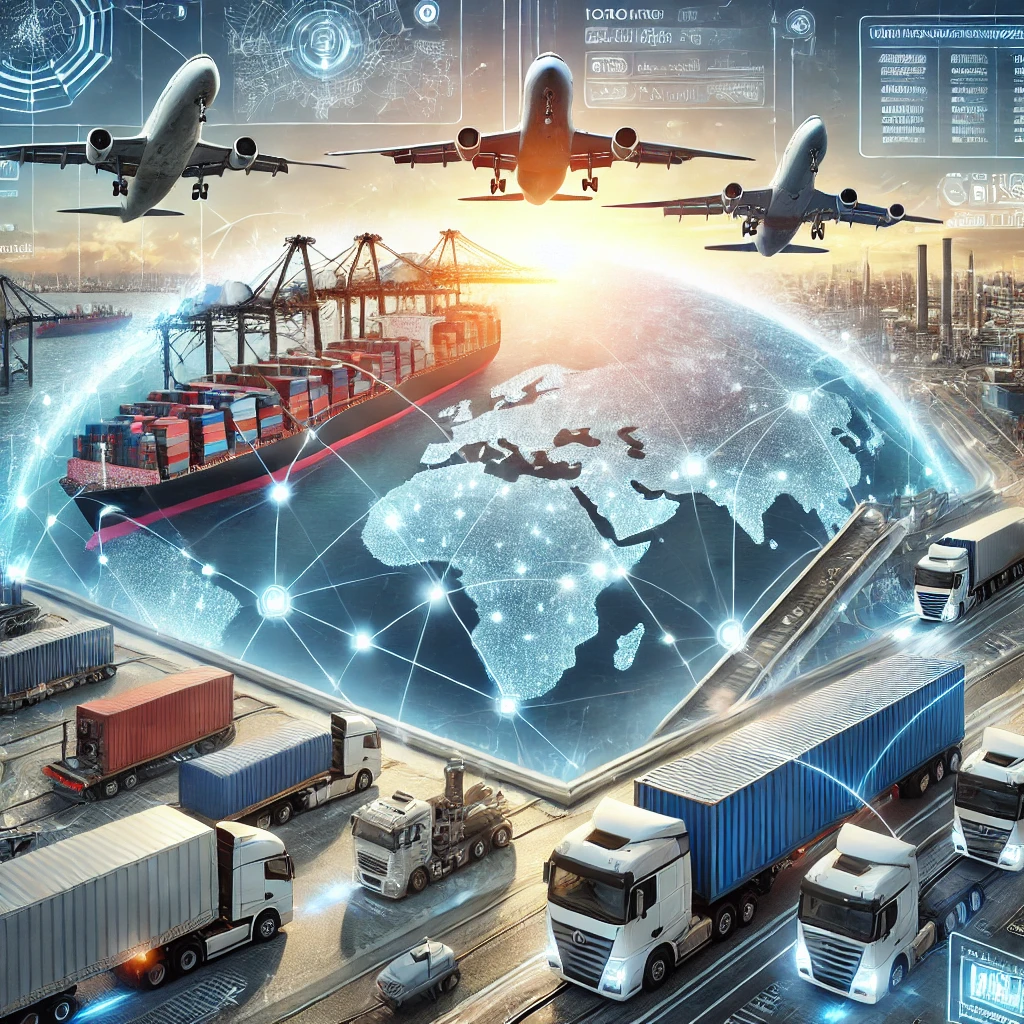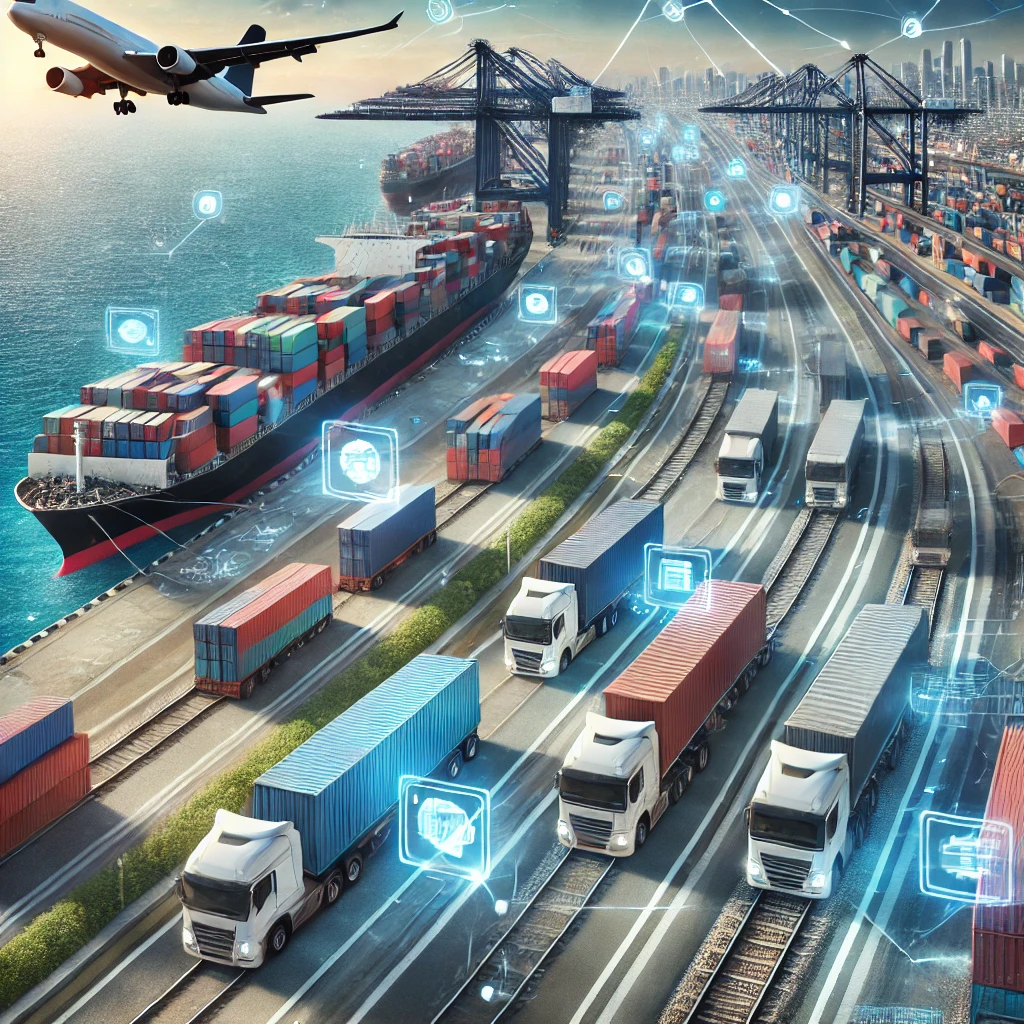Freight Explained: Understanding the Backbone of Global Trade

What is Freight?
Freight refers to goods transported in bulk by truck, train, ship, or aircraft. It encompasses everything from raw materials to finished products, playing a crucial role in supply chains worldwide. Understanding freight is essential for businesses engaged in international trade, logistics professionals, and anyone interested in global commerce.
Types of Freight
- Land Freight
- Road transport (trucks, vans)
- Rail transport
- Sea Freight
- Container shipping
- Bulk cargo
- Roll-on/Roll-off (RoRo)
- Air Freight
- Commercial airlines
- Dedicated cargo planes
- Intermodal Freight
- Combines multiple transportation modes
Linbis Tip: Our tracking container software provides real-time visibility across all freight types, ensuring seamless tracking regardless of the transportation mode.
Key Components of Freight Transportation

1. Carriers
Companies that physically transport the freight.
2. Freight Forwarders
Intermediaries who arrange the transportation of goods.
3. Customs Brokers
Experts who help navigate customs regulations and procedures.
4. Ports and Terminals
Facilities where freight is loaded, unloaded, and transferred between modes.
5. Warehouses and Distribution Centers
Storage facilities that play a crucial role in the supply chain.
Linbis Advantage: Our logistics solutions integrate with all these components, providing a unified platform for managing the entire freight process.
The Freight Process: From Origin to Destination
- Booking: Shipper requests transportation for their goods.
- Documentation: Preparation of necessary paperwork (e.g., Bill of Lading, Commercial Invoice).
- Pickup: Carrier collects the from the shipper.
- Transportation: Goods are moved via the chosen mode(s) of transport.
- Customs Clearance: Freight undergoes inspection and clearance at borders.
- Delivery: Goods are delivered to the final destination.
Linbis Solution: Our platform streamlines each step of the process, from booking to final delivery, with real-time updates and automated documentation.
Factors Influencing Costs
- Distance and destination
- Mode of transportation
- Weight and dimensions of the cargo
- Type of goods (e.g., hazardous materials)
- Fuel prices
- Season and demand
- Special handling requirements
Linbis Benefit: Our cost analysis tools help businesses understand and optimize their expenses across various scenarios.
The Role of Technology in Modern Management
Technology is transforming the industry, offering:
- Real-time Tracking: Monitor shipments throughout their journey.
- Data Analytics: Make informed decisions based on historical and real-time data.
- Process Automation: Streamline documentation and communication.
- Route Optimization: Reduce transit times and costs.
- Predictive Analytics: Anticipate and mitigate potential disruptions.
Linbis Feature: Our advanced tracking container software and logistics solutions incorporate all these technological advancements, positioning us at the forefront of management innovation.

Challenges in Global Freight
- Capacity Constraints: Balancing supply and demand in transportation.
- Regulatory Compliance: Navigating complex international trade regulations.
- Environmental Concerns: Reducing the carbon footprint of freight transportation.
- Security Risks: Protecting cargo from theft and tampering.
- Market Volatility: Adapting to fluctuating fuel prices and economic conditions.
Linbis Capability: Our risk assessment and compliance tools help businesses navigate these challenges effectively.
The Impact of E-commerce on Freight
The rise of e-commerce has significantly influenced the freight industry:
- Increased demand for last-mile delivery
- Growth in reverse logistics (returns handling)
- Need for faster shipping options
- Emphasis on visibility and tracking for end consumers
Linbis Insight: Our solutions are tailored to meet the unique demands of e-commerce logistics, ensuring seamless integration with online retail platforms.
Future Trends in Freight
- Autonomous Vehicles: Self-driving trucks and ships
- Drone Delivery: For small packages in urban areas
- Blockchain Technology: Enhancing transparency and security
- Green Logistics: Focus on sustainable transportation methods
- AI and Machine Learning: For predictive maintenance and route optimization
Linbis Innovation: We continuously update our software to incorporate emerging trends, ensuring our clients stay ahead of the curve in freight management.

Case Study: Optimizing Global Operations with Linbis
Company Z, a multinational manufacturer, was struggling with visibility and efficiency in their global operations. By implementing Linbis’s tracking container software and logistics solutions, they were able to:
- Reduce transit times by 20%
- Improve shipment visibility by 95%
- Decrease freight costs by 15%
- Enhance customer satisfaction scores by 30%
This case study demonstrates how Linbis’s technology can transform freight operations, leading to significant improvements in efficiency and cost-effectiveness.
Conclusion: The Future of Freight
As the backbone of global trade, freight will continue to evolve and adapt to changing market demands and technological advancements. Understanding the intricacies of transportation is crucial for businesses looking to thrive in the international marketplace.
By leveraging cutting-edge solutions like Linbis’s tracking container software and logistics platform, companies can navigate the complex world of with confidence. Our technology provides the visibility, efficiency, and data-driven insights needed to optimize operations and stay competitive in today’s fast-paced global economy.
Ready to revolutionize your approach to freight management? Contact Linbis today for a personalized demo of our innovative logistics solutions. Let us show you how we can help you streamline your freight operations, reduce costs, and drive growth in the dynamic world of global trade.
By embracing advanced freight management technology and partnering with Linbis, you’re not just moving goods – you’re driving the future of global trade.
